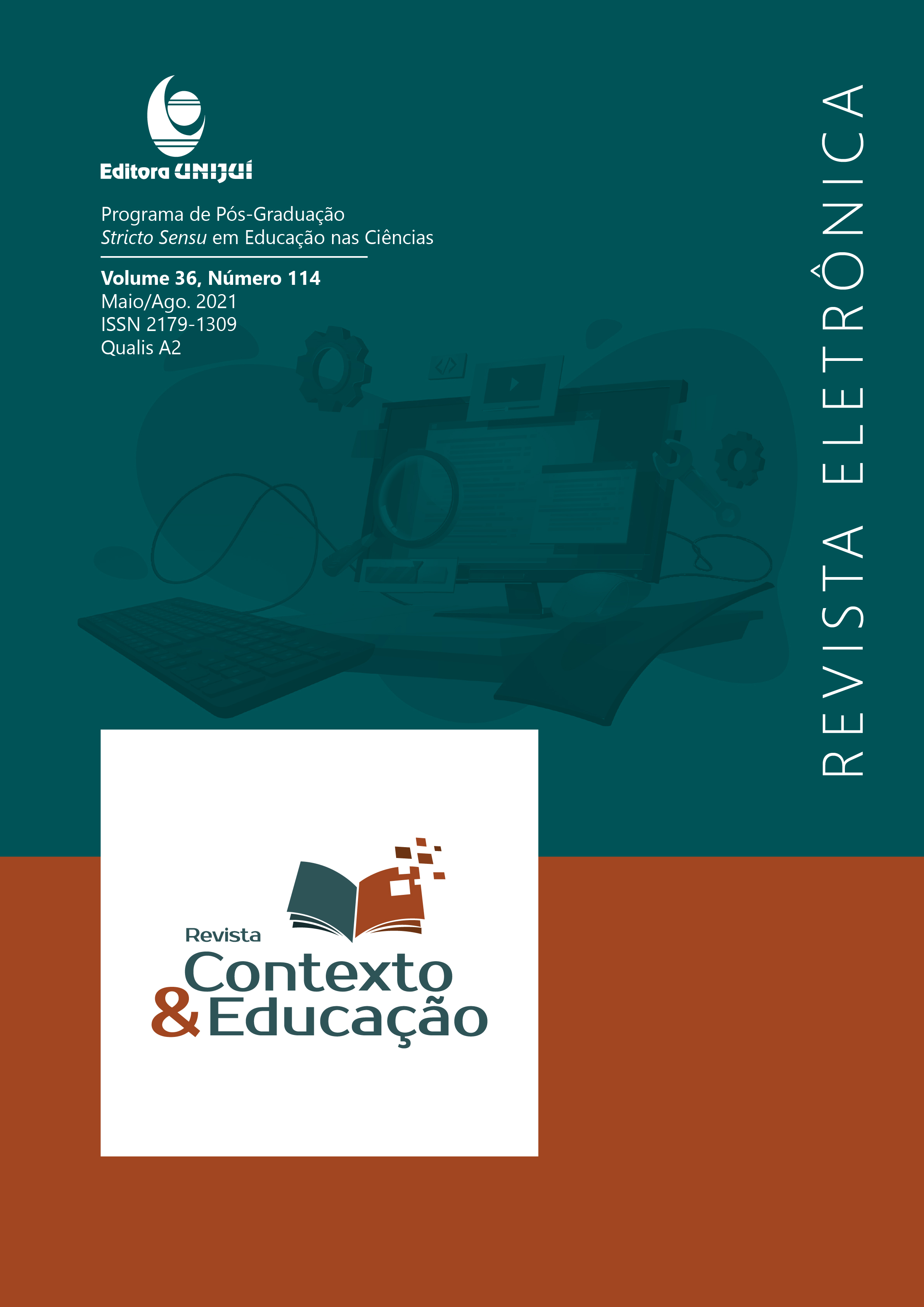(DES)PLUGA: O PENSAMENTO COMPUTACIONAL APLICADO EM ATIVIDADES INOVADORAS
(DIS)PLUG: COMPUTATIONAL THINKING APPLIED TO INNOVATIVE ACTIVITIES
DOI:
https://doi.org/10.21527/2179-1309.2021.114.72-88Palavras-chave:
Computação desplugada, Lógica de programação, Alfabetização digitalResumo
Tendo em vista a necessidade da evolução dos métodos atuais de ensino, esta pesquisa engloba o desenvolvimento de atividades que abordam os conceitos de Pensamento Computacional, envolvendo os seus quatro pilares. As atividades dividem-se em dois grupos: o grupo das atividades desplugadas onde não há o uso de máquinas, e as atividades plugadas onde existe o auxílio de recursos digitais. Para isso, segue-se a metodologia pesquisa ação, com 6 etapas: revisão sistemática de literatura, elaboração, testagem, validação, correção e desenvolvimento do produto final, onde elas finalmente chegarão aos estudantes, primeiramente por meio dos docentes que auxiliarão a equipe na etapa de validação e posteriormente com ampla divulgação. Até o momento, em torno de 40 atividades já foram desenvolvidas, sendo que nesse artigo exemplificamos as atividades desplugadas já desenvolvidas e que estão em fase de validação com professores da escola básica. Também ocorreu a oportunidade de testagem de algumas atividades em um minicurso com estudantes, que contribuíram com comentários e diferentes visões sobre as metodologias. Ao longo da pesquisa, pretende-se concluir as demais etapas e auxiliar na formação de professores em Pensamento Computacional, inovando as metodologias utilizadas atualmente em sala de aula diante de uma geração de nativos digitais.
Downloads
Publicado
Como Citar
Edição
Seção
Licença
Ao publicar na Revista Contexto & Educação, os autores concordam com os seguintes termos:
Os trabalhos seguem a licença Creative Commons Atribuição 4.0 Internacional (CC BY 4.0), que permite:
Compartilhar — copiar e redistribuir o material em qualquer meio ou formato;
Adaptar — remixar, transformar e criar a partir do material para qualquer fim, inclusive comercial.
Essas permissões são irrevogáveis, desde que respeitados os seguintes termos:
Atribuição — os autores devem ser devidamente creditados, com link para a licença e indicação de eventuais alterações realizadas.
Sem restrições adicionais — não podem ser aplicadas condições legais ou tecnológicas que restrinjam o uso permitido pela licença.
Avisos:
A licença não se aplica a elementos em domínio público ou cobertos por exceções legais.
A licença não garante todos os direitos necessários para usos específicos (ex.: direitos de imagem, privacidade ou morais).
A revista não se responsabiliza pelas opiniões expressas nos artigos, que são de exclusiva responsabilidade dos autores. O Editor, com o apoio do Comitê Editorial, reserva-se o direito de sugerir ou solicitar modificações quando necessário.
Somente serão aceitos artigos científicos originais, com resultados de pesquisas de interesse que não tenham sido publicados nem submetidos simultaneamente a outro periódico com o mesmo objetivo.
A menção a marcas comerciais ou produtos específicos destina-se apenas à identificação, sem qualquer vínculo promocional por parte dos autores ou da revista.
Contrato de Licença (para artigos publicados a partir de outubro/2025): Os autores mantém os direitos autorais sobre seu artigo, e concedem a Revista Contexto & Educação o direito de primeira publicação.


